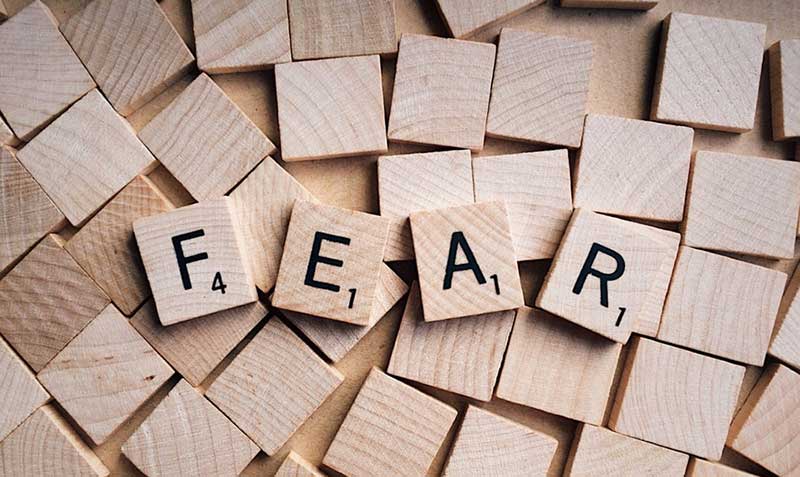Everyone experiences the emotion fear. It is completely natural and human to be afraid at times and have life fears. For some, fear can become so great as to start impairing daily functioning, causing loss of sleep, affecting work, relationships, and our ability to face the day-to-day nuances of life.
Why Am I Afraid?
There can be many reasons why someone would experience fear consistently and to the point that it impairs or affects functioning. Some possible reasons could include:
- Trauma: Experiencing a traumatic physical or emotional event can cause haunting memories leaving a lingering fear that the past could repeat itself. It is common to ruminate and to be afraid of situations, people, or places that are similar to the traumatic event. If someone almost died in a horrible car accident, it would be natural to be afraid to drive again.
- Mental Health Issues: With anxiety, obsessive compulsive disorder, or phobia, fear can be a large component of the issue at hand.
- Anxiety: With anxiety, the fear may manifest in a persistent sense of worry or fear that something could happen.
- OCD: For those who struggle with obsessive compulsive disorder they may have specific “rituals” that they feel compelled to perform. Sometimes individuals feel compelled to perform the ritual out of fear that something bad will happen or a fear of being immoral if they do not perform the ritual. Examples of some rituals and fears could be, washing hands in fear of infectious diseases, checking door locks multiple times in fear of someone breaking in, or praying constantly in fear of not being sinful.
- Phobia: Phobia is a fear of something specific. Often this fear is irrational, extreme, and greater than average or general fears. A phobia can be so great as to cause someone to go to great lengths to avoid encountering the fear.
How Can Therapy Help
When it comes to facing one’s fears, therapy can be very beneficial. There are multiple therapy modalities that can address the core issues of the fear and bring about positive results. In therapy you can learn how to cope with feelings of fear through activities such as mindfulness and relaxation.
A therapist can help you to logically examine your thoughts and help you to see what is rational and irrational. When we learn how to reframe our thoughts, we can gain a better perspective and feel empowered in accepting our fears, but not letting them overwhelm us.
Depending on the fear, some therapists can help expose you to the fear and be there with you to work through the emotion, coping with you, talking you through the experience, and guide you through your fear in a controlled environment.
American Psychiatric Association. (2013). Diagnostic and statistical manual of mental disorders (5th ed.). Arlington, VA: American Psychiatric Publishing.

Dr. Melden earned his Doctorate in Osteopathic Medicine at Philadelphia College Osteopathic Medicine and went to USC Presbyterian Hospital for his residency in Family Medicine. He then completed his Psychiatric residency at the University of California, Irvine and went to UCSD Geropsychiatry pursuing a fellowship. Dr. Melden has over 14 years of experience as a clinician specializing in treating child and adolescent, adult and geriatric clients. He has devoted his life to psychiatry in a variety of different treatment settings including in- patient and out-patient environments. He specializes in the psychiatric evaluation, complementary therapy approaches, and medical management of individuals suffering from mental illness. Currently, he maintains a private practice with Crownview Medical Group in Coronado and Carlsbad, California where he is CEO/President.


 Myriame Nicolas, PMHNP-BC
Myriame Nicolas, PMHNP-BC Charlie Perez, PMHNP-BC
Charlie Perez, PMHNP-BC Kelvin Poon, MSN, PMHNP-BC
Kelvin Poon, MSN, PMHNP-BC


 Apneet Mann, FNP-C
Apneet Mann, FNP-C Kimberly Umansky, FNP-C
Kimberly Umansky, FNP-C Joanne Talbot Miller, M.A., LMFT
Joanne Talbot Miller, M.A., LMFT Rachael Hueftle, NP
Rachael Hueftle, NP J. Heather Fitzpatrick, LCSW
J. Heather Fitzpatrick, LCSW Agata Nowakowska
Agata Nowakowska Brianna Meacham
Brianna Meacham Maha Moses, PhD
Maha Moses, PhD Rebecca McKnight, PsyD
Rebecca McKnight, PsyD Tiffany Holm N.P.
Tiffany Holm N.P. Dede Echitey, PMHNP-BC
Dede Echitey, PMHNP-BC

